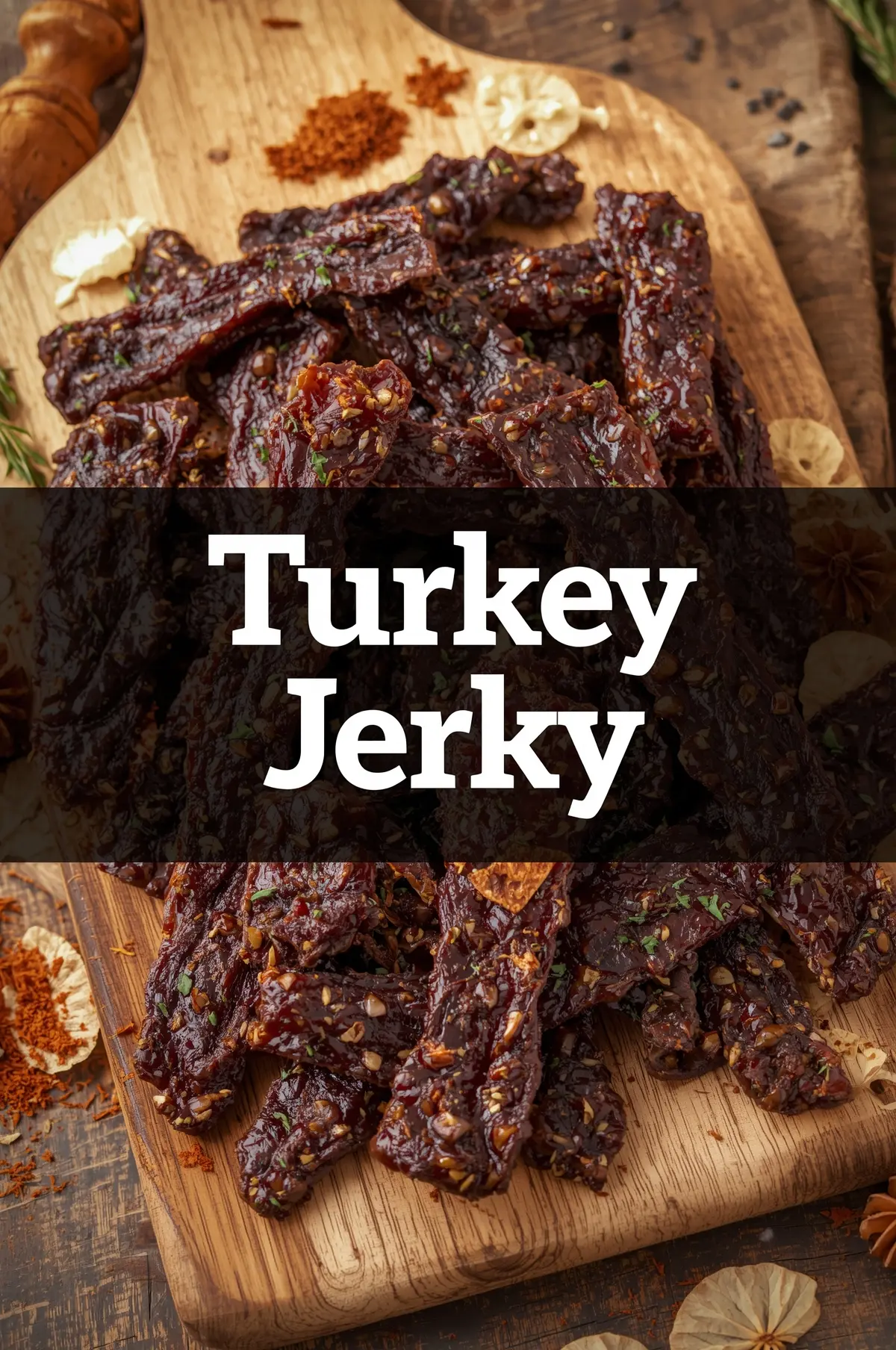Physical Address
304 North Cardinal St.
Dorchester Center, MA 02124
Physical Address
304 North Cardinal St.
Dorchester Center, MA 02124

Turkey jerky is a lean, high-protein snack that’s perfect for on-the-go meals, hiking trips, or a healthy alternative to traditional beef jerky. Homemade turkey jerky is not only more flavorful but also allows you to control the seasoning and avoid preservatives found in store-bought versions. This turkey jerky recipe is easy to make and packed with savory, slightly sweet, and smoky flavors.
Trim any excess fat from the turkey breast. Slice the meat into thin strips, about ¼ inch thick. For easier slicing, place the turkey in the freezer for 30–45 minutes beforehand.
In a large bowl, combine soy sauce, Worcestershire sauce, honey, smoked paprika, garlic powder, onion powder, black pepper, and red pepper flakes. Add the turkey strips and toss to coat evenly. Cover and marinate in the refrigerator for 4–6 hours or overnight for maximum flavor.
Place the turkey strips in a single layer on the baking sheet or dehydrator tray, making sure they do not overlap.
Remove the turkey jerky and let it cool completely. Store in an airtight container at room temperature for up to 2 weeks, or refrigerate for longer shelf life.
🥩 Tips for the Perfect Turkey Jerky:
This turkey jerky recipe is a healthy, protein-packed snack that’s easy to make at home. Perfectly seasoned, chewy, and flavorful, it’s a great addition to your snack rotation or outdoor adventures.